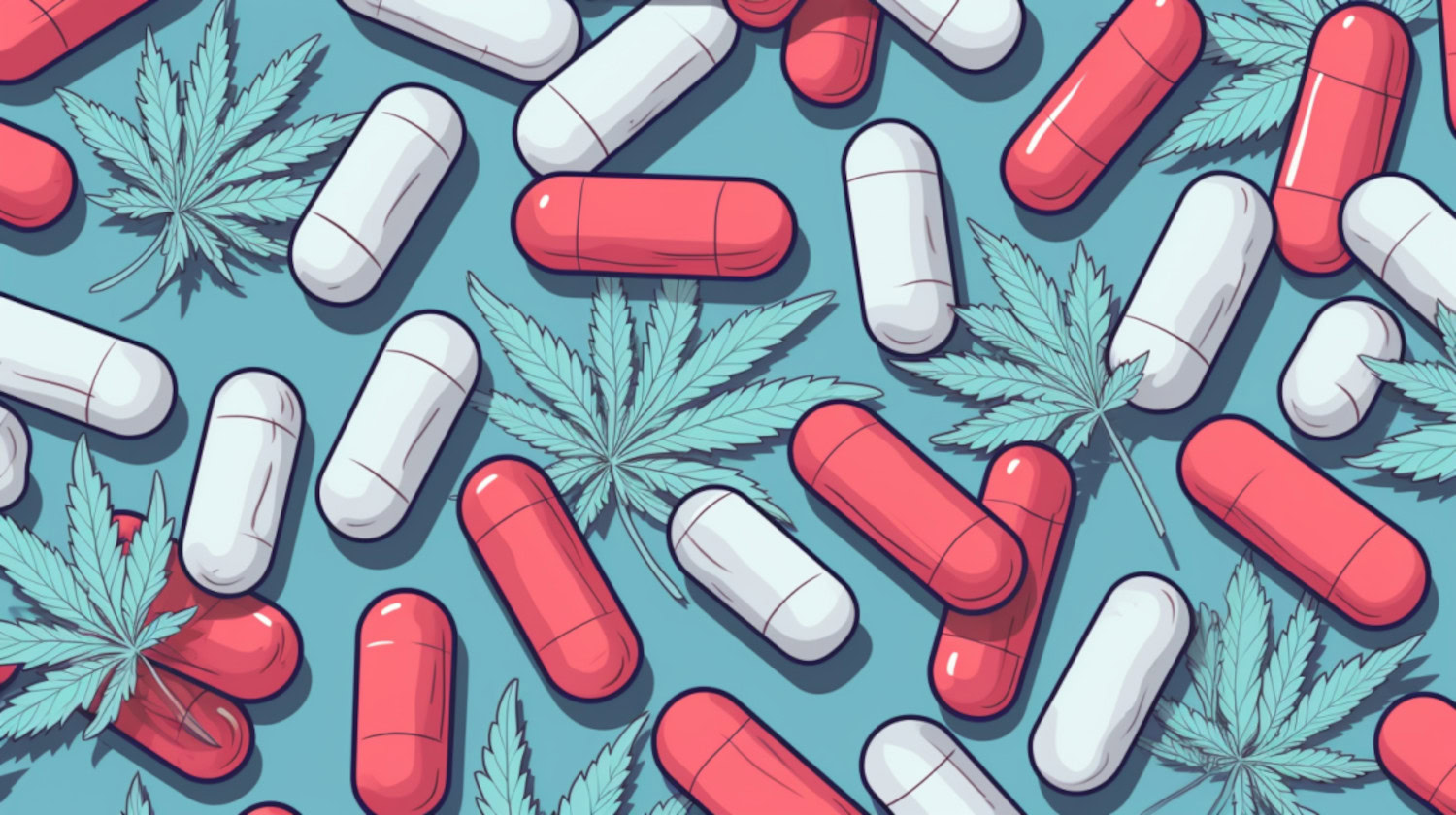Key Takeaways
- Epidiolex is an FDA-approved medication derived from CBD for treating seizure conditions.
- Epidiolex dosing should be handled by your doctor and should follow the recommended guidelines.
- Generally, Epidiolex dosing is based on weight at 2.5mg/kg twice daily, but consult your doctor for dosing information.
Most Americans now have access to cannabis products through state medical or recreational programs or federally legal hemp. Yet only one plant-based cannabinoid, CBD, is approved in pharmaceutical form by the Food and Drug Administration (FDA).
Epidiolex is an FDA-approved medicine containing purified cannabidiol (CBD) made from hemp. However, getting the correct Epidiolex dosing can be key to its success.
What is Epidiolex Approved to Treat?
Epidiolex, available by prescription only, is now approved for the treatment of seizures in three specific and rare conditions.
Only three medical conditions qualify for the use of Epidiolex.
Two childhood epilepsy syndromes, Dravet syndrome (DS) and Lennox-Gastaut syndrome (LGS), are approved conditions for Epidiolex prescriptions. Both syndromes are rare: Dravet syndrome affects approximately 1:15,700 children, while LGS is even rarer, affecting approximately 1:200,000 children.1
A third condition, approved for use in 2020, is tuberous sclerosis complex (TSC).
Prescription Epidiolex treats the seizures that mark these conditions. Seizures involve sudden bursts of electrical activity in the brain that temporarily disrupt the signals sent between brain cells. There are four main types of seizures, defined by the body’s reaction:
- Tonic – When the muscles in the body become stiff.
- Atonic – When the muscles in the body relax and become limp.
- Myoclonic – Parts of the body experience short jerking movements.
- Clonic – When the body experiences periods of shaking or jerking.
Dravet syndrome is a genetic condition that appears in the first year of life with fever-related seizures. As the child ages, other seizure types occur, including myoclonic. A life-threatening state of continuous seizure activity may occur. Children with Dravet syndrome typically experience developmental issues in language, motor skills, activities, and social growth.
Lennox-Gastaut syndrome begins in early childhood. Frequent seizures usually start between ages 3 and 5. Tonic seizures are common in 75% of the cases. Due to long-term disabilities in intellect and motor skills, patients require help with their daily living activities.
Tuberous sclerosis complex (TSC) is a rare condition that causes benign (non-cancerous) tumors to grow in the brain, spinal cord, nerves, and other areas of the body. About a third of the cases are genetic, but TSC can occur spontaneously. TSC can appear in the first year of life, but symptoms may take years to develop in others. Affected patients experience a variety of seizure types.1
Seizures disrupt and impact the lives of patients with these conditions.
The goal of Epidiolex dosing therapy is to reduce the severity and frequency of seizures, with minimal adverse effects from medication, while providing the patient with an improved quality of life.
What is Epidiolex?

Epidiolex is the only U.S. Food and Drug Administration (FDA) approved medicine containing purified CBD (cannabidiol) made from plants. This approval marks a significant milestone in cannabis-based treatments as the first product to gain full approval from the FDA.
Epidiolex approval for three conditions, Lennox-Gastaut syndrome, Dravet syndrome, and tuberous sclerosis complex, treats seizures in patients over 1.
Produced by Greenwich Biosciences Inc., Epidiolex is a highly purified natural CBD oil derived from hemp plants. It contains no THC, the intoxicating cannabinoid.
Why is Epidiolex different from CBD oil, which we can purchase over the counter?
First, the US pharmaceutical industry's quality regulations are stringent. Quality control monitors and purity standards for prescription medications are rigid. Epidiolex provides the highest pharmaceutical-grade CBD.
Second, other CBD products derived from hemp may contain small amounts of THC, up to 0.3%. Epidiolex processing removes all traces of THC for the purest possible CBD.
Finally, the consumer CBD market is not regulated. The FDA does not approve CBD products. Over-the-counter products can vary widely in the actual amount of CBD or THC included in them. Inconsistency in manufacturing processes, labeling, and purity makes it difficult for consumers to evaluate or confirm the quantity or quality of CBD in their products.
Epidiolex comes in a liquid oil form for oral use. Epidiolex prescribing information explains that dosing is flexible, but like other cannabis products, the guidance starts with a low amount and is adjusted up as tolerated by the patient. For children, dosing is based on the child’s weight.
According to recent research, Epidiolex works with the body’s natural endocannabinoid system, which regulates mood, sleep, and pain and reduces the frequency and intensity of seizures.
While CBD’s action is not fully understood, it appears to stabilize neurological activity and prevent seizure episodes. Epidiolex may change calcium levels in brain cells, which are essential for sending messages or signals between cells. The medicine may also decrease inflammation in the brain.
After dosing with Epidiolex, the liver and gut metabolize it. Epidiolex is absorbed into the bloodstream and travels through the body to the brain before excreting excess.
Epidiolex Side Effects and Risks
Any new medicine undergoes rigorous testing before FDA approval. After successful laboratory and animal testing, multiple human clinical trials are needed. The FDA then specifies additional requirements for manufacturing and labeling that meet government standards.
With CBD, the active ingredient in Epidiolex, both clinical testing and years of anecdotal reports show CBD to be safe for use.
There are no reports of CBD addiction or withdrawal symptoms.
CBD is well tolerated in clinical trials. Common adverse drug reactions included sleepiness, fatigue, rash, decreased appetite, diarrhea, insomnia, infection, and elevated liver enzymes. Most of these side effects are manageable with dose adjustments.
Elevated liver enzymes are a notable concern, particularly in patients also taking valproic acid or clobazam, indicating a significant drug interaction. Clobazam acts on seizures associated with LGS. Valproic acid is an anti-convulsant used in epilepsy and some psychiatric conditions. Liver enzyme studies may be ordered to monitor liver health.1
Epidiolex uses sesame oil as a carrier agent for CBD. Patients allergic to sesame oil should not take Epidiolex.
Epidiolex Benefits and Successes

CBD has a good record of health benefits and safety. It does not cause any intoxication or “high,” there is no risk of abuse, and it does not impair daily functioning.
But its most substantial scientific proof is in the treatment of the childhood epilepsy syndromes, Dravet and Lennox-Gastaut syndromes, which often do not respond well to anti-seizure medications.
Clinical studies on the effectiveness of CBD for the treatment of seizures are promising. Study participants with DS and LGS show a significant (50%) reduction in seizure frequency. The number of seizures per month dropped by 22.8 percentage points on average. Among the treatment group caregivers, 62% judged their child’s condition to be improved.
All trials of Epidiolex showed a significant absolute reduction in seizure frequency.1
There are other existing pharmaceutical medications used to treat seizures associated with Dravet syndrome and Lennox-Gastaut syndrome. Epidiolex can be used alone or with other therapies under medical supervision and monitoring without serious side effects.
The most common concerns about CBD revolve around its purity and processing. As an unregulated substance, sketchy operators can and do sell products with contaminants, pesticides, or inaccurate statements of potency. Self-treatment of epilepsy and seizure disorders with cannabis is not advisable.
With Epidiolex, caregivers and patients can trust the CBD used is of the highest quality, allowing for precise and assured dosing.
Correct Epidiolex Dosing
Correct dosing of Epidiolex is critical to maximize the effectiveness and minimize side effects.
Although you can’t overdose on CBD, excessive amounts can cause unpleasant effects. Common Epidiolex side effects include sleepiness, decreased appetite, diarrhea, fever, and vomiting. Severe overdoses could exacerbate these effects and require medical attention.2
It’s vital to take Epidiolex as directed. Missing a dose or stopping use can cause serious problems.
Epidiolex dosage is based on the patient’s weight. The initial dosage is typically 2.5mg/kg taken twice daily, totaling 5mg/kg daily. A healthcare provider may increase the dosage to a maintenance dose of 5mg/kg twice daily, totaling 10/mg/kg per day, based on the individual’s response and tolerance.
A doctor will do a blood test to check liver health before prescribing Epidiolex. They will also determine if any existing medications will interact with CBD and Epidiolex, which can cause adverse results.
Dosing adjustments are necessary for patients with liver impairment. Patients with moderate impairment should reduce their dose by half, and those with severe impairment should reduce their initial and maintenance doses to a third of the recommended dosage for patients without liver issues.
Always follow your healthcare provider’s dosing recommendations. The official Epidiolex healthcare provider site provides detailed dosing guidance, including adjustments for liver issues.
When to Ask for Epidiolex

Epidiolex is approved for the treatment of seizures associated with specific conditions.
According to Epidiolex prescribing information, it is most effective for patients over two years of age and older diagnosed with Dravet syndrome, Lennox-Gastaut syndrome and in patients over one year of age and older for tuberous sclerosis complex.
These rare and severe forms of epilepsy often resist traditional seizure treatments. Epidiolex may be an option as an add-on therapy in some cases.
Despite these benefits, there are situations where Epidiolex may not be recommended. Known allergies to CBD or any of the ingredients in Epidiolex, like sesame seed oil, may rule out this therapy.
If you have liver disease, your doctor will determine if Epidiolex should be used. The dose may need to be adjusted in cases of moderate to severe liver impairment.
There is limited data on the use of Epidiolex when pregnant or breastfeeding. A doctor can discuss the risks and benefits with you.
As a prescribed medicine, Epidiolex is classified as a Schedule V drug. Physicians may prescribe Epidiolex for off-label use if they believe it will be therapeutic for another condition. Ask a doctor if this is an appropriate treatment for your condition.
Currently, no studies show Epidiolex to be effective as a stand-alone approach to epilepsy.
Starting any new medication requires a thorough evaluation by a qualified medical professional. Although patient reviews of Epidiolex are positive, only a doctor should recommend this treatment to ensure it aligns with your medical condition and health needs.
References
- Abu-Sawwa R, Scutt B, Park Y. Emerging Use of Epidiolex (Cannabidiol) in Epilepsy. The Journal of Pediatric Pharmacology and Therapeutics. 2020;25(6):485-499. doi:https://doi.org/10.5863/1551-6776-25.6.485 ↩︎
- Millar SA, Maguire RF, Yates AS, O’Sullivan SE. Towards Better Delivery of Cannabidiol (CBD). Pharmaceuticals. 2020; 13(9):219. https://doi.org/10.3390/ph13090219 ↩︎
The information in this article and any included images or charts are for educational purposes only. This information is neither a substitute for, nor does it replace, professional legal advice or medical advice, diagnosis, or treatment. If you have any concerns or questions about laws, regulations, or your health, you should always consult with an attorney, physician or other licensed professional.




